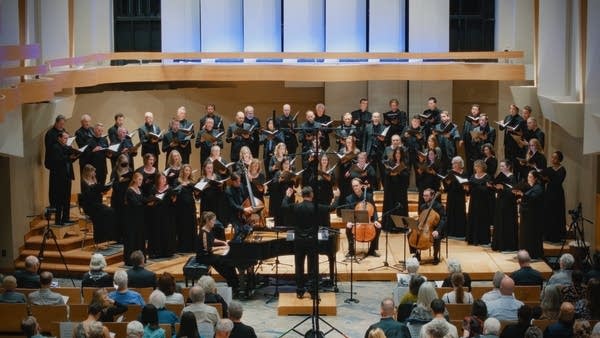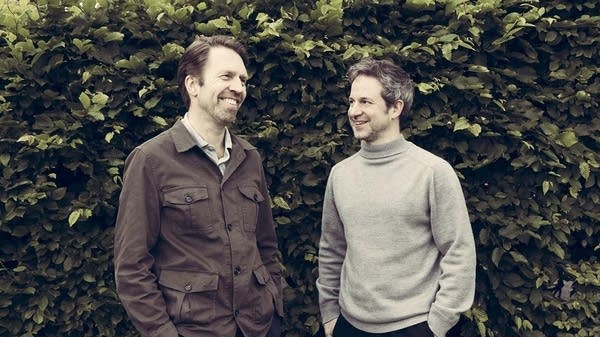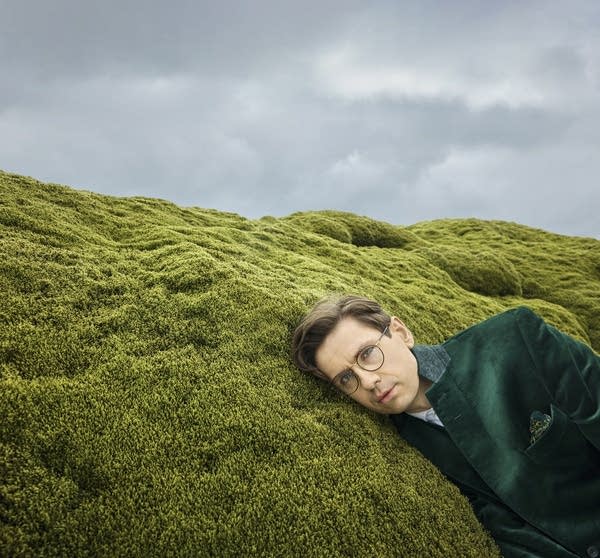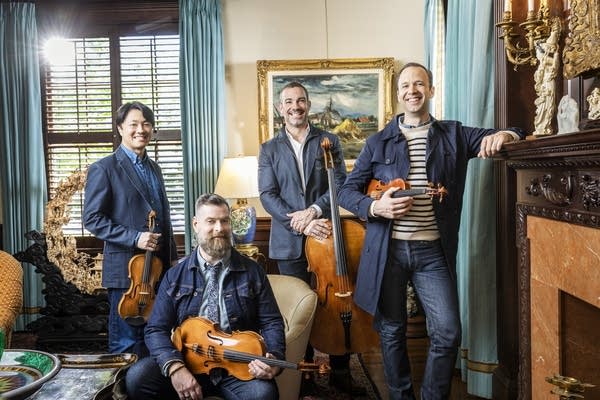
British pianist Stephen Hough won a MacArthur Genius Grant in 2001. He was the first classical artist to win the prestigious award. It was an amazing thing to get that phone call, Hough recalls, not just because it's a lot of money, but because it was a vote of encouragement: "In fact, since winning that, I've done so many more things than I ever did before, which in a way, I think, underlines the fact that the MacArthur is not so much about an award for something that you've done but for some sort of potential perhaps that the committee see about what you might do in the future."
Stephen Hough has certainly proven his potential as a concert pianist. He's also a composer, a writer and a painter. In fact his abstract paintings are currently on exhibit at the Broadbent Gallery in London. His hand is involved in numerous projects, the most recent of which is The French Album, a collection of music from the turn of the 19th and 20th centuries by French composers — well, mostly French composers. The recording opens with Bach's Toccata and Fugue as transcribed by one of Hough's favorite pianists:
"Well, I was playing that transcription in my recital programs that year and I was recording the complete music for piano and orchestra of Tchaikovsky with the Minnesota Orchestra in Orchestra Hall, Minneapolis. And the piano they had there at the time was just so brilliant and full of power. And it sounded to me like a great French organ. And I started playing a bit of the Toccata and Fugue and I loved the way it sounded and I said to the producer, do we have any spare tape? Can I just put down a couple of takes of this piece while we're here? I'd love to see how it sounded. And then when I was putting together this French record — of course, Bach isn't French but the arrangement was: Alfred Cortot. And it just seemed to me a rather quirky way to open this record and to use this track that we'd recorded at that time. So yeah, it's a great, big, stonking American Steinway and I loved it."
"I love the ambiguity of Faure," Hough says of the French Impressionist. "There's a certain kind of nonchalance with French art in some ways — this idea that it's deeply felt but it isn't shown on the surface. And I think that quality is so much in evidence with Faure. I love the fact that his harmonies are shifting around and they create this incredible melancholy."
"That's another theme, in a way, to the CD. There are two pieces on the CD indeed called Melancholy, one by Chabrier and one glorious masterpiece by Poulenc. In fact, the melody of Melancholy, could have been a song sung by Edith Piaf. It's this wonderful feeling of being in a French café, late at night, and it's sort of twilight and you know you're feeling a little bit reflective and that's pure Poulenc mood, that wonderful, bittersweet kind of sense."
A few of Stephen Hough's own arrangements appear on The French Album, as well, including a pizzicato from Delibe's ballet Sylvia, that he often uses as an encore piece in concert, "With the pizzicato of Delibes," he explains, "there is a little twinkle. I like sometimes encores that have a sense of humor, a little sense of camp around them. There's a little bit of a smile in it and then I've taken it and maybe extended the smile a little bit more in places, especially at the end of course, when it actually goes deliberately in the wrong key."
Since winning the MacArthur Foundation Genius grant Stephen Hough has done a lot of different things. This season alone, he's an artist-in-resident with the BBC Symphony, he's writing a cello sonata for Stephen Isserlis, he's preparing a series of recitals to premiere his second piano sonata, and he's gearing up to record both of Brahms' piano concertos in Salzburg this January. There's always something to look forward to from this Renaissance man, including his latest solo recording, The French Album.
Love the music?
Show your support by making a gift to YourClassical.
Each day, we’re here for you with thoughtful streams that set the tone for your day – not to mention the stories and programs that inspire you to new discovery and help you explore the music you love.
YourClassical is available for free, because we are listener-supported public media. Take a moment to make your gift today.
Your Donation
About New Classical Tracks®
Host Julie Amacher provides an in-depth exploration of a new classical music release each week.
Subscribe on Apple Podcasts, TuneIn, Radio Public, or RSS.











